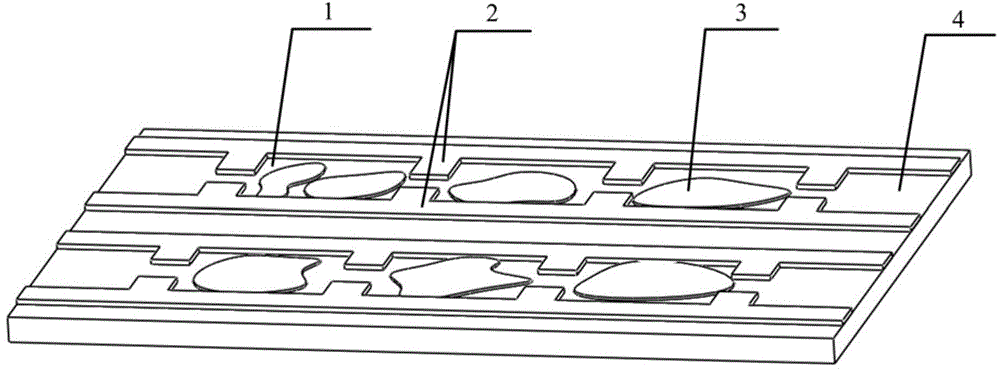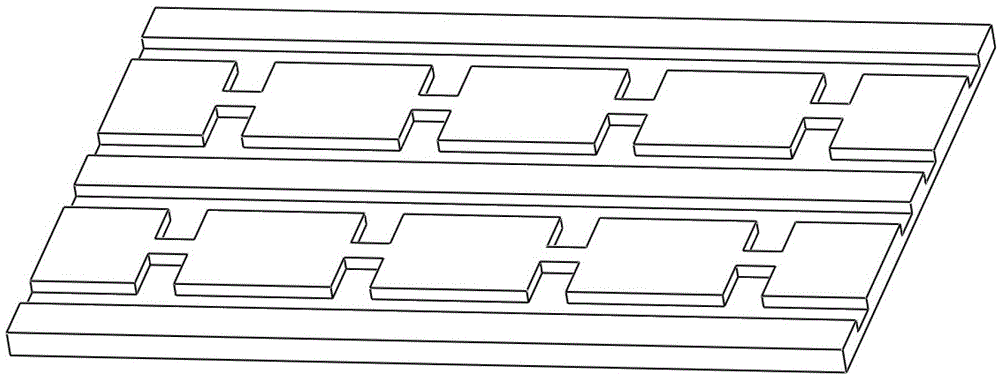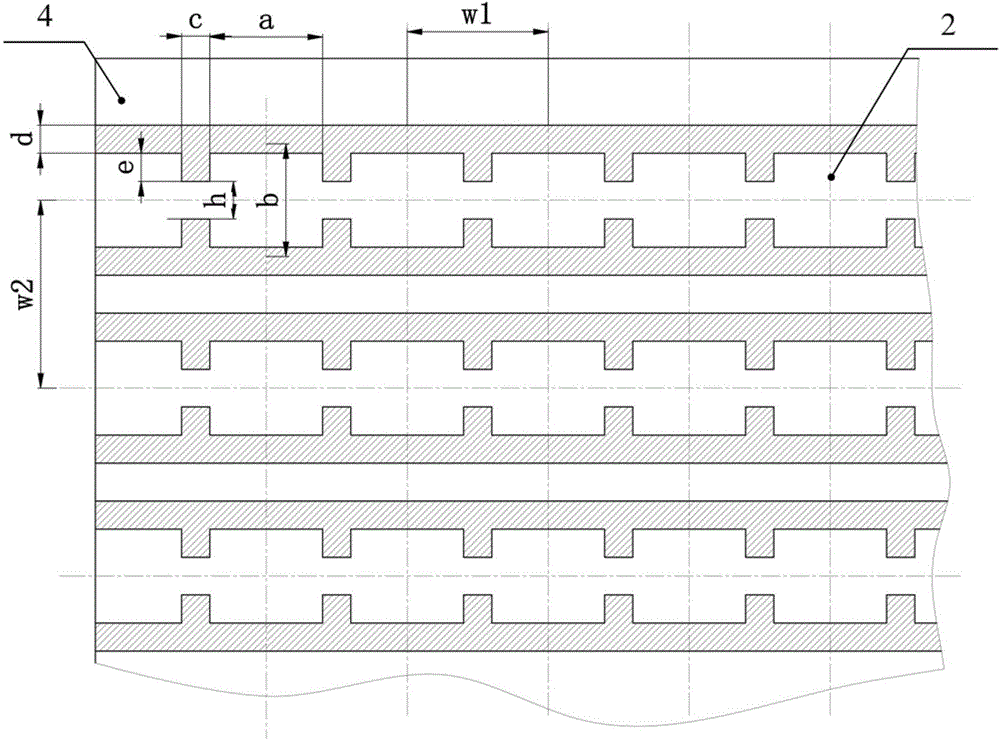Glass chip for cultivating single cell array based on microfluidic patterning technology and preparation method thereof
A technology of glass chips and cell arrays, applied in tissue cell/virus culture devices, biochemical equipment and methods, biochemical instruments, etc., can solve the problem of not being able to obtain single cell arrays, not being able to limit the location and shape of cell growth, and not being able to form a closed cell Regional and other issues, to achieve the effect of simple and easy to operate in the preparation process, easy to control parameters, and high economy
- Summary
- Abstract
- Description
- Claims
- Application Information
AI Technical Summary
Problems solved by technology
Method used
Image
Examples
Embodiment 1
[0026] The chip in this example is used to culture a single osteoblast MC3T3-E1 for cell contact connection research. MC3T3-E1 average diameter It is 20μm.
[0027] Refer to Figure 1 ~ Figure 3 . In this example, the single-cell array culture glass chip is used for MC3T3-E1 cell culture. Among them, the structure size of the single cell array culture glass chip is as follows: the size of the cell growth area 1 a=b=50μm; the lateral distance between the center lines of two adjacent cell growth areas 1 w1=70μm; the growth of two adjacent cells The longitudinal distance between the center lines of area 1 w2=80μm; the line width of PHEMA hydrogel pattern 2 is d=20μm, the size of the convex part of the hydrogel pattern c=e=20μm; the distance between two adjacent PHEMA hydrogels is the most The narrow distance h=20μm.
[0028] In this embodiment, the method for manufacturing a single-cell array culture glass chip based on microfluidic patterning technology is implemented by using M...
Embodiment 2
[0037] The chip in this example is used to cultivate human breast epithelial cells HMEC to study the growth characteristics of the cells. HMEC average diameter It is 45μm.
[0038] Refer to Figure 1 ~ Figure 3 . In this example, a single cell array culture glass chip is used for HMEC cell culture. Among them, the structure size of the single cell array culture glass chip is as follows: the size of the cell growth area 1 a=b=80 μm; the lateral distance between the center lines of two adjacent cell growth areas 1 w1=120 μm; the growth of two adjacent cells The longitudinal distance between the center lines of area 1 w2=140μm; the line width of the PHEMA hydrogel pattern d=40μm, the size of the convex part of the hydrogel pattern c=e=40μm; the distance between two adjacent PHEMA hydrogels The narrow distance h=20μm.
[0039] In this embodiment, the method for manufacturing a single-cell array culture glass chip based on microfluidic patterning technology is implemented by using ...
PUM
| Property | Measurement | Unit |
|---|---|---|
| size | aaaaa | aaaaa |
| size | aaaaa | aaaaa |
Abstract
Description
Claims
Application Information
 Login to View More
Login to View More - R&D
- Intellectual Property
- Life Sciences
- Materials
- Tech Scout
- Unparalleled Data Quality
- Higher Quality Content
- 60% Fewer Hallucinations
Browse by: Latest US Patents, China's latest patents, Technical Efficacy Thesaurus, Application Domain, Technology Topic, Popular Technical Reports.
© 2025 PatSnap. All rights reserved.Legal|Privacy policy|Modern Slavery Act Transparency Statement|Sitemap|About US| Contact US: help@patsnap.com



